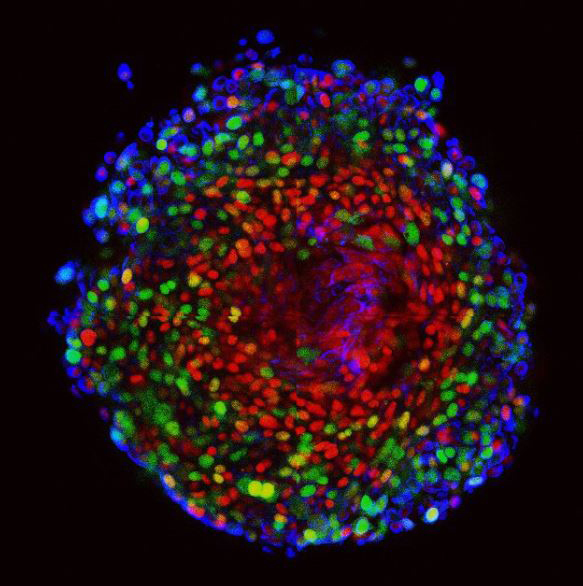 Cancer
Cancer
Scientists and clinicians at TRI are working towards improved diagnosis and treatment of various cancers including breast, prostate, head and neck, and skin cancers.
In 2018, an estimated 140,000 new cases of cancer were diagnosed, and just under 50,000 people died from the disease (AIHW, 2018). In Australia, the most commonly diagnosed cancers are currently breast cancer, followed by prostate cancer, colorectal cancer and melanoma.(AIHW, 2018)
Researchers at TRI are working closely with clinicians to identify novel ways to detect, diagnose, monitor and treat various types of cancers. These projects include specialist cancer groups across QUT's Institute of Health and Biomedical Innovation, Mater Research, The University of Queensland.
Image: Cancer tumour spheroid with fluorescent labelling according to cell phenotype. Crystal Tonnessen (June 2015).

































.jpg?itok=k8KILj3f)










